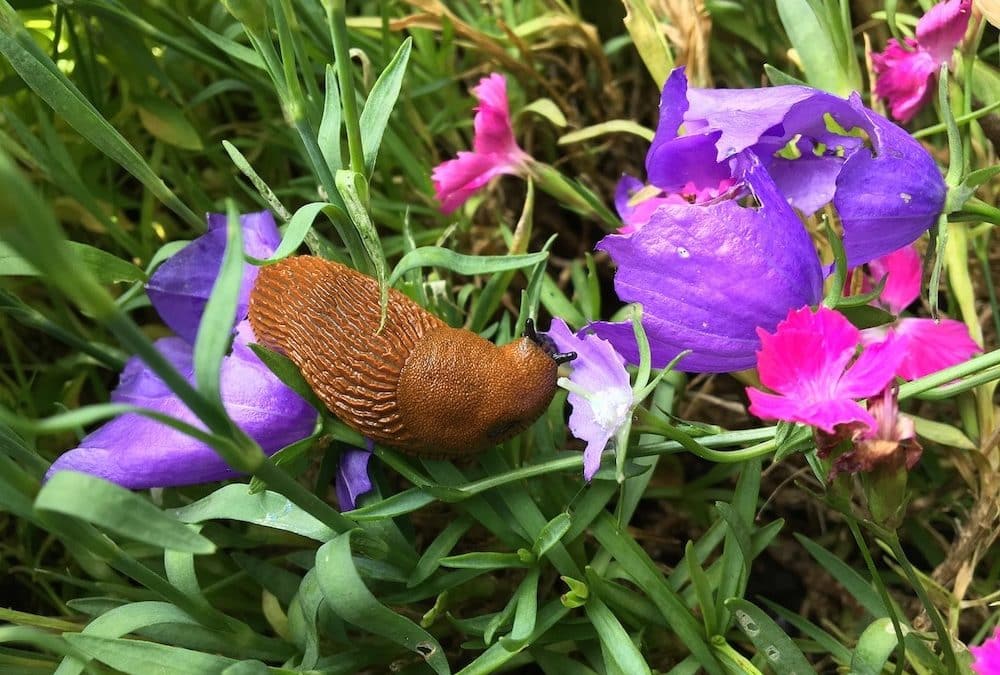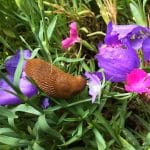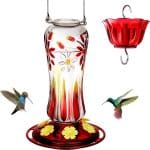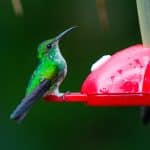When I first moved to the Pacific NW, I found myself living in a moderate rain forest. This of course is what makes it so lush, green, and very beautiful. However, it also means that all kinds of squishy things live there – in particular slugs and snails.
Not all of them are little either! Have you ever seen a banana slug or a leopard slug? They’re huge! Some of these slugs can get to be 4-5 inches (10-12cm) long and even larger.
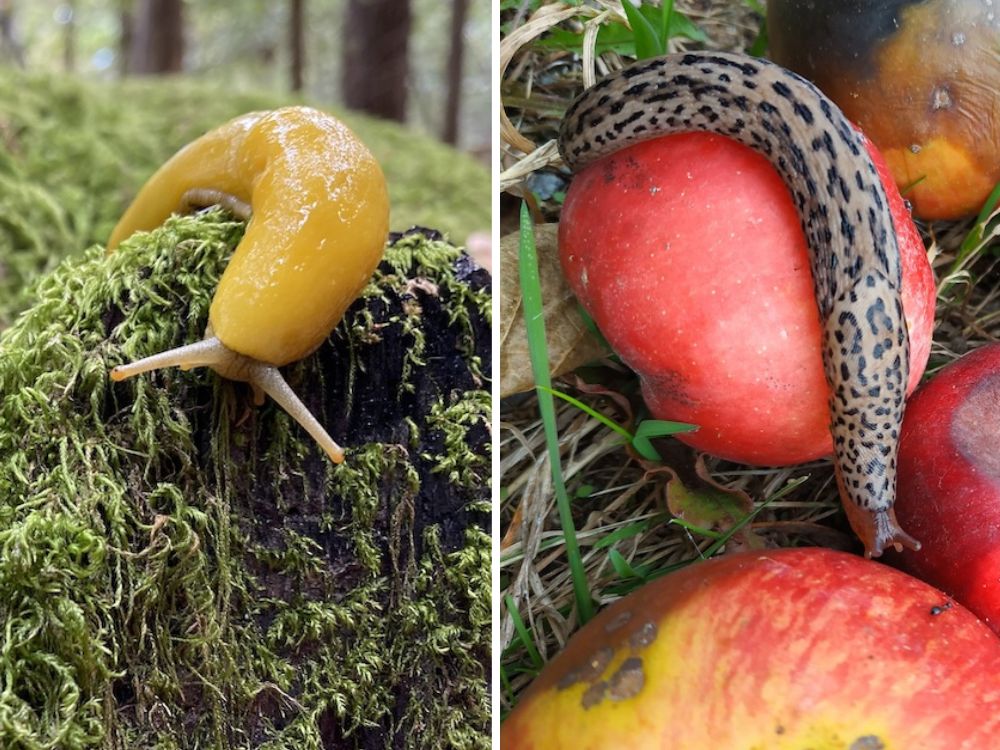
Banana Slug (left) / Leopard Slug (right)
One soggy afternoon, I went for a walk with a friend and was mildly disgusted when we came upon a couple of shiny 5-inch long dog pooh’s in the middle of the sidewalk we were walking on. I thought to myself “How lazy are the dog owners around here?” Then, they started to move – ewww!
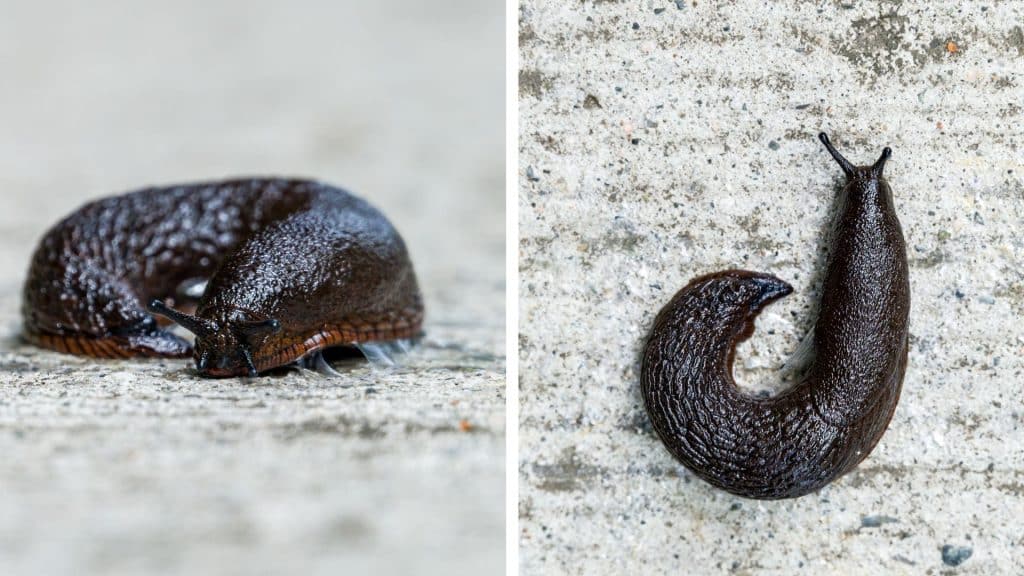
This was obviously not dog poop! As it turns out, I was seeing two giant black slugs slowly making their way to the grass on the other side of the wet sidewalk.
That was my first introduction to slugs in the Pacific NW. Being from Colorado which is very dry, I’d never seen anything like that before! Colorado slugs are small and brown, and hang out at the base of shrubs and gardens and are rarely seen. They were nothing compared to these giant monsters that apparently, like to go out for a casual stroll through the neighborhood! Yikes!
Plus, there are trillions of little snails everywhere – 5 tiny snails got caught in my hair once just by brushing past some ivy growing on my house… nice.
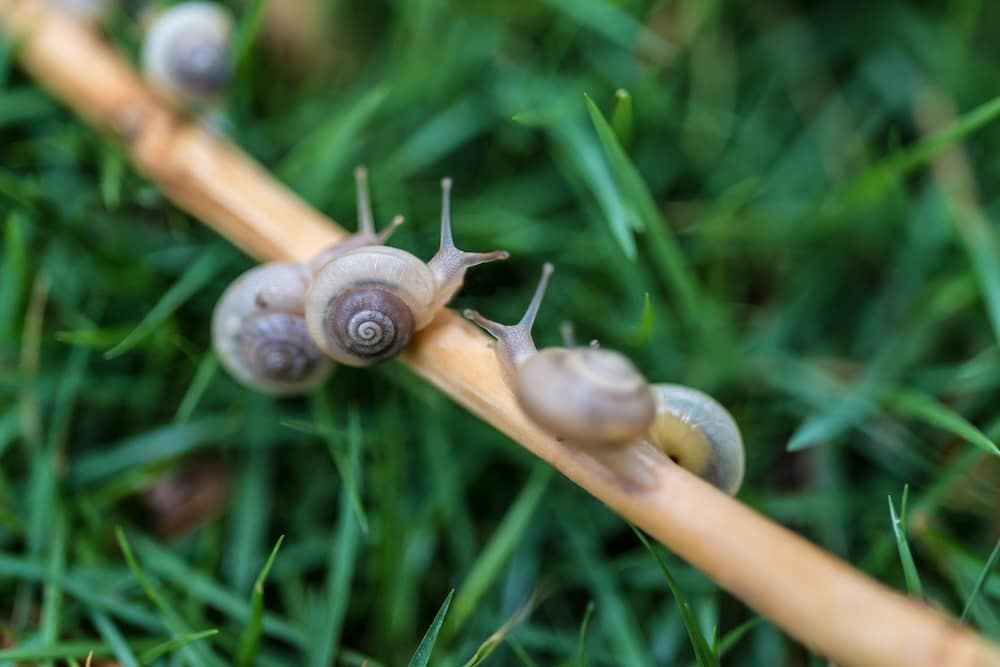
Tiny Snails Everywhere!
ANYway, I had a couple of little petunia and pansy gardens in my backyard, and I also had some strawberries growing in a container in the front yard.
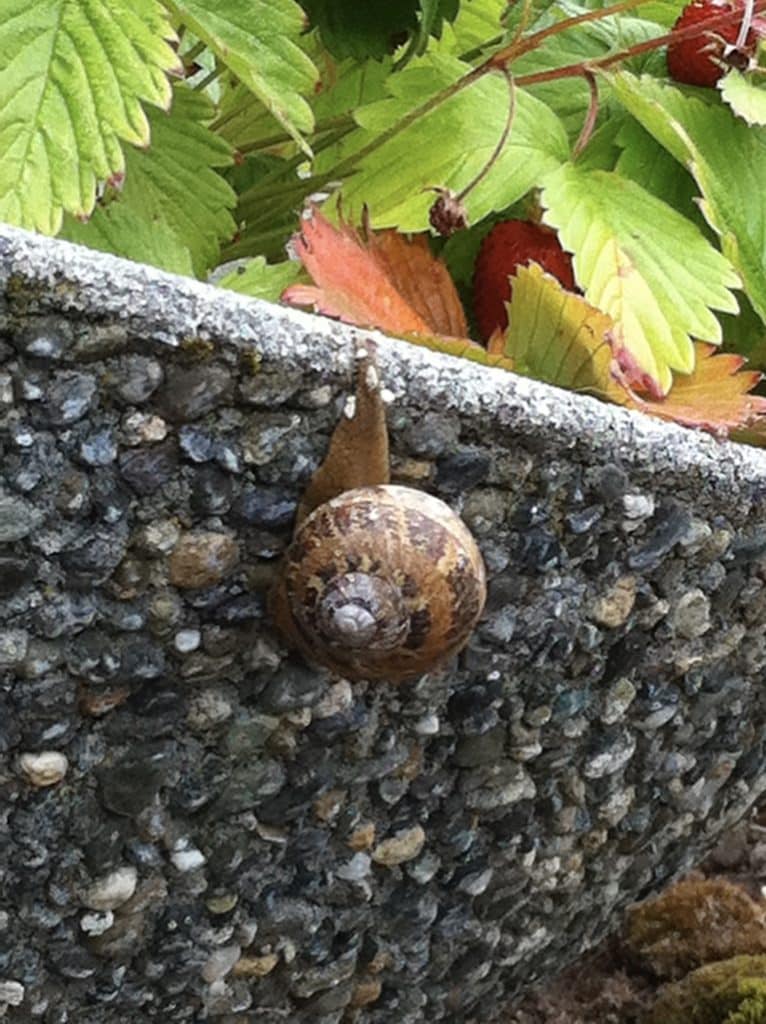
Headed to Breakfast. A snail on a planter in my front yard
As it turns out, slugs and snails just love petunias, pansies, strawberries and raspberries to name a few. Heck, they’ll eat anything floral, leafy, fruity, or very important to you.
Overnight they feasted on my flowers and by the next morning I was left with nothing but stems. Something had to be done!
Since I had two cats and two dogs that played in that yard, I only wanted a natural solution – no poisons or chemicals – not with little furry feet wandering about.
I checked with some of the local garden centers for something natural and pet-safe to use. Instead of being sold a product, this wonderful clerk gave me a simple tip for umm, redirecting them as it were.
Here’s what you do:
- Fill shallow tins (like tuna or cat food tins) 2/3rd full with cheap beer ($1.49 a quart) and place them on the ground where slugs or snails are grazing on your prize whatever’s.
- Put the tins out at twilight or just after dark. I do it then because that’s when most slugs and snails are out and about. During the day they are usually hiding under a rock or someplace wet, cool and out of the sun.
- Important: Pick the tins up in the morning and empty them in the toilet in order to keep pets from eating or drinking the potentially toxic slug filled beer.
Here’s what happens:
Apparently, slugs and snails are more attracted to the hops in the beer than they are to the flowers. They climb into the tin, get drunk, pass out, and drown. I know it is kind of sad, but it’s better than torturing them with salt or poisons. And at least they get to party a little bit before the end.
IF YOU HAVE PETS:
- Keep pets (like cats) inside overnight after you put the tins out because they like beer too. I found that if the slugs and snails didn’t get to the beer first, then the cats always ended up drinking it and getting drunk. Which was ok for the cats I guess, but it didn’t promote my cause at all!
- Accompany your pets outside at night to make sure they don’t drink the beer, unless of course it’s in a place they can’t get to.
- You must empty the dead snail-filled tins every morning or there is the chance that your pets or local wildlife will drink what’s left of the beer and potentially eat the dead slugs/snails, which can be toxic.
And there you have it, a natural and fairly simple solution to a slimy garden problem.
Slugs and snails can be found anywhere it’s wet, and where food can be found. They can ruin any flower or vegetable garden if not kept in check.
Good luck. Let me know how it works out for you.
Bloom On!
Views: 13

